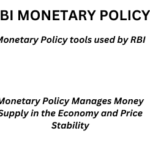India’s G-20 Presidency will be grounded in the theme ‘Vasudhaiva Kutumbakam’ :Basics Explained

1st December 2022, India will preside over the G-20 Summit. India’s G-20 Presidency will be grounded in the theme ‘Vasudhaiva Kutumbakam’ or One Earth, One Family, One Future.
Originally from Maha Upanishad, the “Vasudhaiva Kutumbakam” phrase is part of this Shlok. This phrase is another demonstration of the all-inclusive attitude that our Indian tradition has. Unity in diversity is something that we have been practicing for thousands of years, the underlying belief says the same, we have emerged from one, the Brahman, the ultimate reality. The philosophy seeks to overcome the ‘us-vs-them’; transcends any specific religion. It emphasizes inclusion; does not impose uniformity and it accepts diversity. That is why it is so relevant today. The philosophy of Vasudhaiva Kutumbakam is an antidote to the self-centred and selfish thinking(Unilateralism; Russian-Ukraine war, vetos at UN), the consequences of which are proving to be disastrous for mankind.
RELEVANCE OF THE CONCEPT IN TODAY’S TIME
The world, present time, is facing unparalleled multidimensional crises. We have experienced the devastation brought by the Covid-19 pandemic, and other challenges including existential threats like climate change, weapons of mass destruction, terrorism, the paucity of resources, economic downturn (recession looms over world economies), increased poverty, slowed global recovery, dismal achievements of the Sustainable Development Goals. The coronavirus pandemic is the latest reminder of the consequences of highly self-centred and selfish thinking, which will do enormous harm to mankind.
Embracing the philosophy of Vasudhaiva Kutumbakam will help the world to come together as one family. The spirit of co-existence is strong enough to overcome any barriers of knowledge or distance.
This is the ideal of Vasudhaiva Kutumbakam – of the world being one family. It is an idea that may sound impractical in today’s times of tensions and of terrorism. But it is an ideal that has inspired India for thousands of years – and that ideal can be felt in the very texture of our constitutional values.
Vasudhaiva Kutumbakam can serve as the basis of the ongoing discussion regarding global cooperation for resolving global problems. The principles of compassion, of assisting those in need, of building capacities of our neighbours, or even of those further away, underpin our society. These are the very principles that we bring to the international community.” Indian philosophic thought underscores the concept of unity or oneness in the creation. The universe is diverse but there is interconnectedness and harmony in it. an idea that unites, rather than divides.
It can underpin new multilateralism that the world needs urgently. The imposition of uniformity brings strife, clashes and bloodshed. Building a better world – a composite and cohesive world, a world at peace with itself and at peace with nature. The concept of global commons underlines the interconnected relationship of man with nature and among natural systems.
Mahatma Gandhi’s Ahimsa (non-violence) both as a creed and a strategy is considered an extension of Vasudhaiva Kutumbakam. It envisions unity of mankind as one single family. Nothing validates this ancient thought more than today’s interconnected world with instant satellite communication, swift air transport and the internet.
Vasudhaiva Kutumbakam imparts a sense of oneness to our common humanity, our common development goals(SDG), and our common quest for a rule-based global order and international peace. It conveys succinctly that we prevail or perish(Climate Change Paris agreement) together as one family.
In the light of these noble thoughts India’s political leaders decided to engrave Vasudhaiva Kutumbakam at the entrance hall of Parliament of India. At the root of Vasudhaiva is Vasudha, our planet earth, and therefore, an extension of the concept of Vasudhaiva Kutumbakam which highlights India’s concerns for the environment and the whole planet.
The philosophy of Vasudhaiva Kutumbakam could also guide countries to adhere to sustainable development goals, prevent biodiversity loss and work towards mitigating climate change. It affirms the worth of all life – human, animal and plants – and the value of their interconnectedness on Earth and in the universe, just as the goal of yoga is unity.
The idea of Vasudhaiva Kutumbakam can strengthen the UN efforts to imbibe the culture of peace amongst people. The UN declared the first decade of the 21st century as the decade of the Culture of Peace and Disarmament. The universal ideas of Hinduism, Buddhism, Jainism, Sikhism, which emphasize alleviation of suffering, and overcoming of differences through dialogue, must be brought into the international discourse.
Imbibing ethics, morality and spirituality in international political and economic discourse would enrich multilateralism. Multilateral discourse should embrace the spirit of interconnectedness as reflected in the motto Vasudhaiva Kutumbakam. We need a new paradigm for new multilateralism. Vasudhaiva Kutumbakam provides that paradigm. Multilateral discourse should be guided by the spirit of making the world more humane, and a liveable and happier place
G20 member countries include the US, UK, Germany, India, Australia, Japan, Russia, Argentina, Brazil, Canada, China, France, Indonesia, Italy, South Korea, Mexico, Saudi Arabia, South Africa and Turkey and EU.




0 Comments